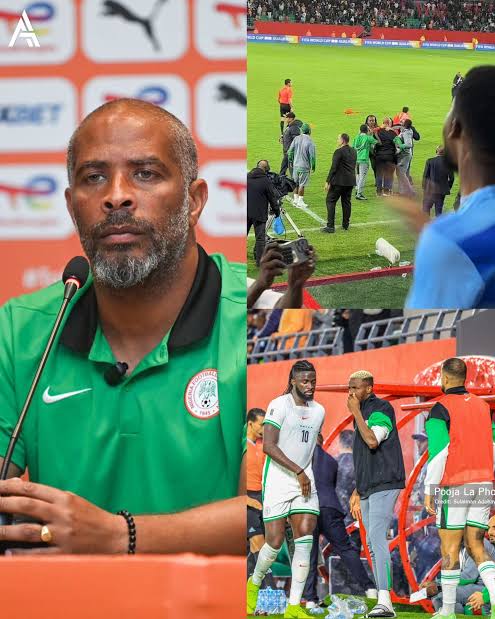The dust has settled on our recent failure to qualify for the world Cup next year to be hosted by three nations, United States of America, Canada and Mexico, leaving behind a familiar, acrid smell of shame and frustration.
While the immediate reaction focuses on the lost opportunity and the monetary implications—allegations of corruption or misuse of funds—we must resist the urge to remain mired in these surface-level critiques. Though these issues are undeniably critical and deserve scrutiny, they are often mere symptoms of a far more destructive and pervasive disease plaguing our institutions: deep, chronic incompetence and a profound lack of strategic vision.
This moment, painful as it is, should not be viewed solely as a setback, but as the crucible—the turning point—we desperately need for true, long-term progress.
At the core of our systemic failures lies a destructive pattern: the continued practice of placing unqualified individuals in key, high-stakes positions. These appointments are often driven by sentiment, cronyism, or political expediency, rather than a rigorous assessment of capability.
We are consistently entrusting our future to people who demonstrably possess:
No Strategic Plan, They only manage by reaction, not by design, incapable of formulating a coherent, multi-year strategy necessary for sustained high performance.
They lack the crucial, hands-on experience of operating within—or leading—organizations where excellence is the minimum acceptable standard. They cannot cultivate what they have never lived.

Their focus is on short-term fixes, superficial visibility, and transient results, demonstrating zero appreciation for the foundational work, institutional building, and long-term investment required to achieve lasting success. This cycle of chronic incompetence acts as a powerful brake on progress, ensuring that even the most talented players or dedicated staff are operating within a structurally broken system, set up for inevitable failure.
The path to genuine, structural reform is inherently difficult because it demands qualities that are often in short supply in our results-driven, instant-gratification culture: selflessness and long-term thinking.
Real change is not about chasing quick fixes. It means:
Trusting the Process: Prioritizing the establishment of sound structures, transparent processes, and meritocratic systems over the immediate, fleeting thrill of a short-term ‘win.’
Building Foundations: Committing to work that is difficult, unglamorous, and which may not produce instant rewards or accolades for the current leaders—foundations that will only truly bear fruit years down the line.
We must shift the institutional mindset from “What can we get out of this now?” to “What can we build to ensure success for the next generation?”
Perhaps the most painful honesty required is the need to confront the notion of “birthright” in professional roles, particularly those based on past athletic or public achievements. We must be brutally honest: simply being an ex-player or a former notable figure is not, in itself, a qualification for a modern, complex administrative or leadership role.

The modern world demands continuous evolution. For those seeking to transition from the pitch to the boardroom, the bare minimum requirement is:
Expanded Knowledge: Demonstrable intellectual growth beyond their playing days. Built and gather experience, track record of studying, acquiring new skills, and gaining relevant, high-level administrative or managerial experience outside the realm of celebrity.
A leadership role is a responsibility based on proven current competence, not an entitlement handed out solely in recognition of past career achievements. To accept anything less is to willfully cripple our own future by venerating nostalgia over necessary skill.
If we genuinely desire serious outcomes—if we want to compete consistently at the highest level and build institutions that are resilient and successful—then we must stop the endless cycle of soft talk, political maneuvering, and blame-shifting.
This requires serious conversations that lead directly to serious, intimidating decisions, Implement a rigorous, competence-based vetting system for all key appointments, free from political interference.
Demand transparency and accountability from every leader, measured against pre-defined, strategic, long-term KPIs, not just match results and be brave enough to appoint the best-qualified individual, irrespective of their perceived loyalty or past affiliation.
Our collective future hinges on whether we choose to continue whispering excuses or if we finally roar the uncomfortable truth: the cost of incompetence is far greater than the cost of any financial scandal. This is the time to tear down the system built on sentiment and erect one founded on cold, hard, unyielding merit.









